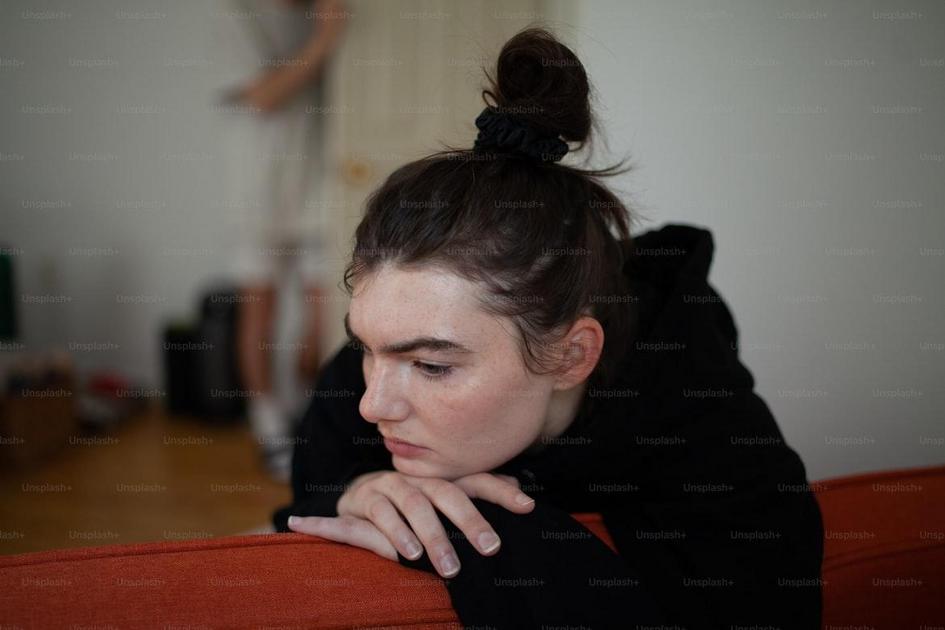Are you a woman struggling with sleepless nights, only to find your distress mislabeled as depression? It’s a frustrating experience that too many women face. The connection between insomnia and mental health is often overlooked, leading to misdiagnosis and inadequate treatment. In this post, we will delve into the nuances of women’s insomnia, how it is frequently misdiagnosed, and why addressing sleep health is crucial for overall well-being.
Understanding the Link Between Insomnia and Depression
Women often find themselves trapped in a cycle of insomnia and depression. For many, sleepless nights lead to feelings of sadness and despair. When this occurs, it’s easy for healthcare professionals to misdiagnose insomnia as depression. This results in women receiving treatment for depression instead of the sleep issues causing their discomfort.
Insomnia affects one in three women at some point in their lives, and many of them report experiencing symptoms of depression as a result. Understanding this connection is crucial in addressing the root causes of these problems. Recognizing how sleep deprivation exacerbates emotional struggles can pave the way for better treatment options.
Common Misdiagnoses Among Women Facing Sleep Issues
Women suffering from insomnia symptoms often visit their physicians seeking help. Unfortunately, many doctors overlook insomnia in favor of addressing the more visible symptoms of depression. This can lead to a cycle of misdiagnosis and mismanagement of their health.
- Depression Symptoms: Women may present symptoms like sadness, fatigue, and a lack of motivation.
- Sleep Issues: However, these could be stemming from insomnia rather than a primary mood disorder.
- Hormonal Factors: Hormonal changes, particularly around menstruation and menopause, often contribute significantly to sleep disturbances.
Without proper identification, treatment centered on addressing depression may be ineffective. It’s essential that both patients and healthcare providers stay alert to the importance of sleep health.
The Silent Struggle: Women’s Experiences with Insomnia
For many women, the experience of insomnia is a silent struggle. It can feel isolating and overwhelming. Females often carry the heavy burden of daily responsibilities, causing stress that only exacerbates their inability to sleep. This stress can manifest in various ways:
- Waking up in the middle of the night and struggling to fall back asleep.
- Feeling drained even after a full night’s sleep.
- Difficulty concentrating during daily activities.
These experiences can lead to a feeling of hopelessness, as many wonder if restful sleep is ever attainable. When women share their stories, it’s evident that the struggle is widespread, though rarely spoken about.
How Hormonal Changes Affect Sleep Quality
One of the most significant factors that affect sleep among women is hormonal changes. Fluctuations in hormones, especially during menstruation, pregnancy, and menopause, can cause serious disruptions in sleep patterns. Estrogen and progesterone levels significantly influence sleep.
- Menstrual Cycle: Many women find that their sleep patterns change dramatically throughout their cycle.
- Pregnancy: Increased hormone levels can lead to insomnia during pregnancy.
- Menopause: As estrogen levels wane, women often experience hot flashes and night sweats that disrupt their sleep.
Understanding these hormonal impacts can empower women to seek more holistic solutions to their sleep problems, instead of solely relying on medication.
Recognizing the Symptoms of Insomnia
It’s crucial for women to recognize the symptoms of insomnia early. It can be easy to dismiss issues like:
- Difficulty Falling Asleep: Lying awake at night can become a routine.
- Interrupted Sleep: Frequent awakenings that disrupt restful sleep.
- Early Morning Waking: Rising earlier than intended and not being able to return to sleep.
Identifying these symptoms in oneself is the first step toward seeking help. Ignoring them won’t magically improve the situation, and can worsen emotional health over time.
Impact of Sleep Deprivation on Daily Life
The toll that sleep deprivation takes on a woman’s daily life is significant. When sleep is insufficient, it can impact:
- Emotional Well-being: Increased irritability and mood swings.
- Cognitive Function: Difficulty concentrating and memory lapses.
- Physical Health: A weakened immune system and higher susceptibility to illness.
As fatigue sets in, it can become harder to engage in social activities and personal interests. This isolation can contribute further to feelings of depression. The cycle continues unless addressed properly.
Role of Stress and Anxiety in Sleep Disruptions
Stress and anxiety are common contributors to sleeplessness among women. Daily life challenges can create a sense of overwhelm:
- Work-related stress and demanding careers.
- Family responsibilities and caregiving roles.
- Social expectations and personal pressures.
These factors can lead to racing thoughts at night, making relaxation nearly impossible. Embracing mindfulness practices or seeking counseling can be vital steps in reducing these pressures and improving sleep quality.
Effective Strategies to Improve Sleep Hygiene
Improving sleep hygiene is essential for women looking to combat insomnia. Here are some strategies to consider:
- Set a Sleep Schedule: Go to bed and wake up at the same time each day.
- Create a Relaxing Environment: Ensure your bedroom is dark, cool, and quiet.
- Limit Screen Time: Reduce exposure to screens before bedtime.
- Establish a Wind-Down Routine: Engage in relaxing activities, such as reading or gentle stretches.
Making these adjustments can lead to significant improvements in sleep over time.
Natural Remedies for Insomnia Relief
Many women seek natural remedies to address their sleep issues. Here are some popular options:
- Herbal Supplements: Chamomile tea or valerian root may promote relaxation.
- Aromatherapy: Essential oils like lavender can help calm the mind.
- Mindfulness Meditation: Practicing meditation can ease anxiety and promote sleep.
These remedies can offer a gentle approach to achieving better sleep quality, allowing women to avoid heavy medications that may have adverse effects.
Finding Support and Community in Your Journey
The path to overcoming insomnia is often easier with support. Connecting with others who understand the struggle can provide comfort. Whether through online forums or local support groups, sharing experiences can help lessen the burden.
Discovering this sense of community can be transformative. Seeing how other women have found solutions can inspire hope. Many are successfully addressing their insomnia and improving their lives—without resorting to heavy medications.
Remember, it is possible to improve those challenging symptoms and struggles. With the right strategies and community support, women can reclaim their sleep and, subsequently, their emotional health. Know that you are not alone on this journey, and there are ways to find relief and joy in restful nights ahead!







